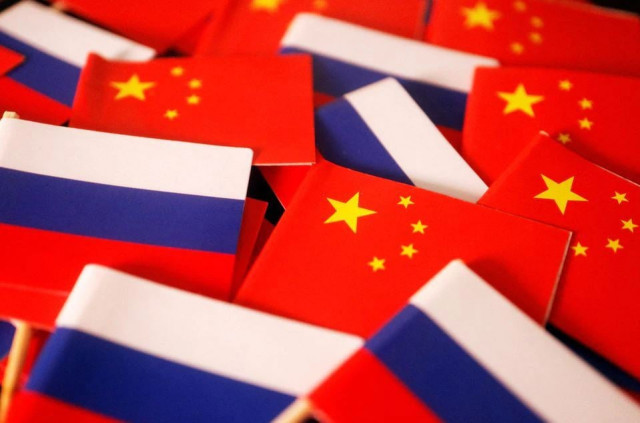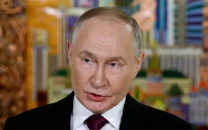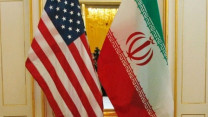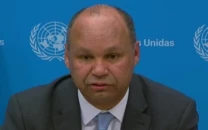Sino-Russian relations ‘not marriage of convenience’
As Xi-Putin meeting stirs unease in Western capitals, China claims talks mark crucial step towards peace, stability

As President Xi Jinping met his Russian counterpart Vladimir Putin, a sense of panic gripped the Western powerful quarters who viewed it as another sinister potion of the “Thucydides Trap” brewing in Beijing’s cauldron, to be served precisely at a time when the US was trying to punish Kremlin over the Ukraine crisis.
In contrast, the air in Beijing was thick with celebrations that the meeting marked a crucial step towards calming the regional waters lashed to turbulence by the US-led Western block and its insidious attempts to contaminate it with NATO expansion.
The meeting, hot on the heels of the International Criminal Court’s (ICC) arrest warrants for Putin, has once again birthed clashing narratives while stirring unease. However, Beijing’s narrative, goes the complaint, has been largely drowned out by “doomsayers” in the international press.
‘Important signal to promote peace’
The Global Times, an English-language Chinese newspaper commenting on international issues, wrote that the Xi-Putin meeting sent “an important signal to promote peace talks”, adding that the message was “peaceful, rational, and helpful to cool down the situation”.
This, the editorial emphasised, has become even more valuable at a moment when the Russia-Ukraine conflict has fallen into a stalemate. Under the current circumstances, any efforts in promoting peace talks and improving the atmosphere for negotiations in the international community are of great significance and can be regarded as a great virtue.
“This is also an important connotation of President Xi's trip of peace,” it added.
White House rejects ceasefire
Meanwhile, the impression in Washington was completely different. Headline after headline sounded alarms that there was a need to curb the rise of China and that the Sino-Russia alliance not only threatened peace but would also potentially devour US interests.
Prior to the closely-watched meeting, the Biden administration had been raising alarm that President Xi Jinping was likely to call for a ceasefire between Russia and Ukraine, warning that support for such a move would play to the favour of Putin.
White House national security spokesperson John Kirby said in a statement on Friday said that an unconditional ceasefire would legitimise Moscow’s hold on an estimated 17 per cent of Ukrainian territory which he claimed was taken by force.
Also read: Russia hits Ukraine with missiles, drones as 'dear friend' Xi departs
However, in the wake of talks between the two leaders in Moscow, the Western experts voiced their lamentation that the meeting “failed to move the needle on bringing that conflict to resolution”.
Experts quoted in a CNN article said that “the meetings yielded no breakthrough on resolving the conflict” and noted that the joint statement by the two leaders “did not acknowledge that Russia’s invasion and military assault were the cause of ongoing violence and humanitarian crisis in Ukraine”.
‘Not marriage of convenience’
Meanwhile, the China Daily denounced the US and its allies for "limitless misuse” of international status and influence “to provoke dissensions and enforce the jungle law for the purpose of safeguarding their privileged positions”.
It asserted that relations between China and Russia were not a marriage of convenience or shotgun wedding brought about by the West's attempts to impair them.
“It is not a military or political alliance such as that among the members of the North Atlantic Treaty Organization,” it read and asserted that it transcended this “model of state-to-state relations upholding the principles of being non-aligned, non-confrontational and not directed against any third country”.



















COMMENTS
Comments are moderated and generally will be posted if they are on-topic and not abusive.
For more information, please see our Comments FAQ